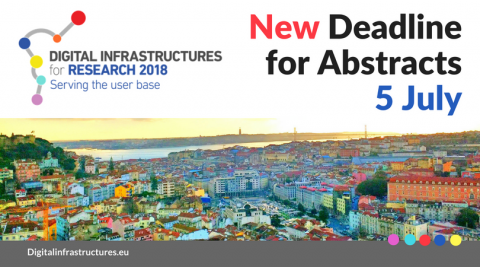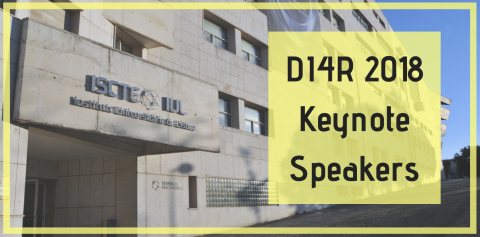
The deadline for submitting abstracts for DI4R 2018 has been extended to 5 July 2018 from the original deadline of 29 June 2018.
With only one week left, interested parties are encouraged to submit their abstracts online at the convenience. All open science players are invited to send proposals for contributions on requirements, developments, success stories and gap analyses.
Note that abstract word limit is set from 300 words minimum up to a maximum of 500 words. Authors of abstracts will be notified on Monday, 16 July 2018.
The third Digital Infrastructure for Research Conference (DI4R 2018) is to be held in Lisbon, from 9th to 11th October 2018. This year’s theme is ‘Challenges for Research Communities around Open Science’.
DI4R 2018 is jointly organised by EOSC-hub, GÉANT, OpenAIRE and PRACE. It will be hosted by the Laboratory of Instrumentation and Experimental Particle Physics (LIP) and will take place at the premises of the ISCTE- University Institute of Lisbon.
DI4R 2018 will showcase the policies, processes, best practices, data and services necessary for the support of the research process to ultimately advance scientific knowledge through open science. Researchers, innovators, data producers, scientific domain experts, librarians, data science practitioners, service providers, project leaders, policy makers and funders, are invited to bring their voice to DI4R 2018.
Following the previous DI4R events, the conference will be an opportunity to report and discuss requirements, existing solutions and success stories that highlight the relevance of open science and its enabling building blocks. By bringing together many different stakeholders, the conference will foster cooperation between infrastructure projects, communities and initiatives.
In the 2018 edition, the Programme Committee is chaired by Sinéad Ryan (Trinity College) and Volker Guelzow (DESY).
Topics of Interest:
We welcome contributions about requirements, solutions, best practices, success stories and ongoing developments in the following topical areas:
Area 1. Cross-Domain challenges / Data exchange across domains: researchers, technologist
Area 2. Open Science and skills
Area 3. Computing and Virtual Research Environments
Area 4. Security, trust and identity
Area 5. Digital Infrastructures for EOSC and/or EDI
Area 6. Business models, sustainability and policies
Area 7. Innovation in Open Science with SMEs and Industry



